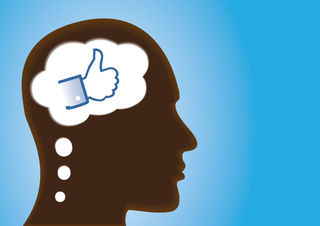Depression
Winter Blues Making You SAD?
Light therapy and mental passwords to defuse those winter blues
Posted January 14, 2019

Trina was feeling gloomy. Her friends were enjoying the fun and good cheer of the holiday season, but Trina did not feel like participating. At this time of the year, she preferred to avoid celebrations that reminded her that she currently lived far from her family, and she missed them very much over the holidays.
Some folks tend to feel depressed in the wintertime. Less daylight, dreary weather, and the high expectations for the holidays can all combine to trigger a range of emotions. While most enjoy the winter season, others experience the “winter blues,” or even “Seasonal Affective Disorder (SAD).” Signs include depressed mood, fatigue and excess sleeping, binging on comfort foods, and weight gain. These winter blues are most commonly experienced in the northern latitudes, perhaps due to reduced daylight hours during the winter, disrupting biorhythms. For some people, winter triggers hormonal changes signaling it’s time to sleep and conserve energy. Yet in our fast-paced modern lifestyles, you can’t tell your boss or spouse that you need some time off for “hibernation.”
One interesting use of technology, known as Photo-therapy, can be effective for those who experience these symptoms. Photo-therapy exposes a person to bright light to make up for decreased sunlight exposure during the winter, and is thought to “reset” the body's internal clock. Some studies show that photo-therapy helped to reduce symptoms of SAD, and may be a useful alternative or adjunct therapy for depression. [see references, below]
Anyone experiencing the blues might try a bit of self-therapy as well. Here’s how Trina coped:
Valerie, her best friend at work, sensed Trina’s melancholy and asked her “What’s wrong?” When Trina revealed that she felt much too distant from her family, Valerie kindly reminded her that “Your family loves you Trina, no matter how far apart you are.” From then on, instead of falling into a sour mood, Trina would instead take a brief walk, and think to herself “My family loves me,” and plan her next family video-call. This became Trina’s mental Password, and it always helped lift her spirits.
Trina also let her Password trigger an “App” – a useful mental skill.
For example, try Mood App “PAS - Positive Asset Search,” to inventory your strengths, and count your blessings. Consider what’s going right, instead of focusing on what’s wrong. Life always has its ups and downs, and it’s easy to fall into the habit of complaining. But if you’re like most people, you also have positives in your life, and people for whom you’re grateful. Almost anyone; even in the most challenging times, can find a silver lining within those dark clouds. For example, think about:

- What am I thankful for?
- What's my unique gift that no one can take away?
- Who loves me, and who do I love?
Use a mental Password to help you monitor your moods, and launch App “PAS - Positive Asset Search,” to reflect on the positives anytime you’re upset, or have a case of the “winter blues.”
Install: Password for Your Mind – The User-Friendly Personal Upgrade!
References
Even, C; Schröder, CM; Friedman, S; Rouillon, F. (2008). "Efficacy of light therapy in nonseasonal depression: A systematic review". Journal of Affective Disorders. 108 (1–2): 11–23. doi:10.1016/j.jad.2007.09.008. PMID 17950467.
Sanassi L.A. (2014). "Seasonal affective disorder: Is there light at the end of the tunnel?". Journal of the American Academy of Physician Assistants. 27 (2): 18–22. doi:10.1097/01.jaa.0000442698.03223.f3.
Tam, EM; Lam, RW; Levitt, AJ. (1995). Treatment of Seasonal Affective Disorder: A Review Canadian Journal of Psychiatry, Volume: 40(8), 457-466. https://doi.org/10.1177/070674379504000806


